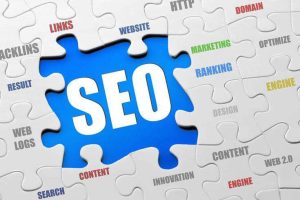businesses can thrive in the competitive digital landscape and achieve their market. SEO marketing is a subset of digital marketing that involves the optimization of websites and web pages for major search engines like Google. In this article, we will delve into the world of SEO marketing, exploring its definition, key components, benefits, and strategies. By the end, you will have a clear understanding of what SEO marketing entails and how it can benefit your business.
Section 1: Understanding SEO Marketing
1.1. Defining SEO Marketing: SEO marketing, also known as search engine optimization marketing, is a digital marketing strategy that focuses on improving the visibility and ranking of a website in search engine results pages (SERPs). highlighting its purpose and importance in today’s digital landscape.
1.2. How Search Engines Work: Search engines work by crawling billions of pages using web crawlers. To understand SEO marketing, it is essential to comprehend how search engines function. This section will provide a simplified explanation of how search engines index and rank websites.
Section 2: Key Components of SEO Marketing
2.1 On-Page SEO: Sometimes referred to as “on-site SEO,” on-page SEO relates to the optimization of websites and pages to improve rankings in the major search engines. It involves various techniques and strategies implemented directly on the website content and HTML source code.
2.2 Off-Page SEO: Whereas organizations have a broad degree of control concerning on-page SEO, it can be a little different for off-page SEO. On a larger level, off-page SEO relates to the reputation and popularity of websites and web pages. such as backlink building, social media signals, and online reputation management.
2.3 Technical SEO: technical SEO refers to the optimization of a website’s technical aspects to enhance its visibility in search engine results. This section will cover topics like website speed, mobile-friendliness, and site architecture.
Section 3: Benefits of SEO Marketing
3.1 Increased Website Traffic: Increasing website traffic is a common goal for many businesses and organizations. There are several effective strategies that can help drive more visitors to your website. SEO marketing helps businesses attract more organic traffic,
3.2 Improved User Experience: Improved user experience refers to enhancing the quality of interactions and overall satisfaction that users have when using a product, service, or system. It focuses on making the user journey smoother, intuitive, and enjoyable.
3.3 Cost-Effective Strategy: A cost-effective strategy refers to a plan of action that aims to achieve desired results while minimizing expenses. This strategy focuses on maximizing value for the money spent, and often involves finding ways to reduce costs, streamline processes, and increase efficiencies.
Section 4: SEO Marketing Strategies
4.1 Keyword Research and Optimization: Keyword research and selection are closely tied to content production and fundamental to SEO marketing efforts.
4.2 Content Marketing: Search engine marketing is highly dependent upon the production of good content on a regular basis. From this standpoint, content must satisfy a need, generally by supplying information or answering a question.
4.3 Link Building: Backlinks from authoritative websites play a significant role in SEO. This section will discuss effective link-building strategies to improve your website’s authority and ranking.
Conclusion:
In conclusion, SEO marketing is an indispensable strategy for businesses looking to improve their online visibility and attract organic traffic.
The benefits of SEO marketing include increased website traffic, improved user experience, and a cost-effective solution for long-term growth. By understanding the key components and strategies of SEO marketing goals. If you are interested in learning more about SEO marketing benefits and approaches, it can be highly productive to become a member of the American Marketing Association (AMA).

